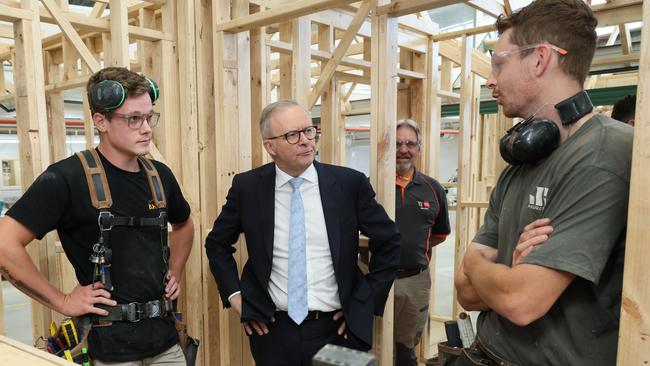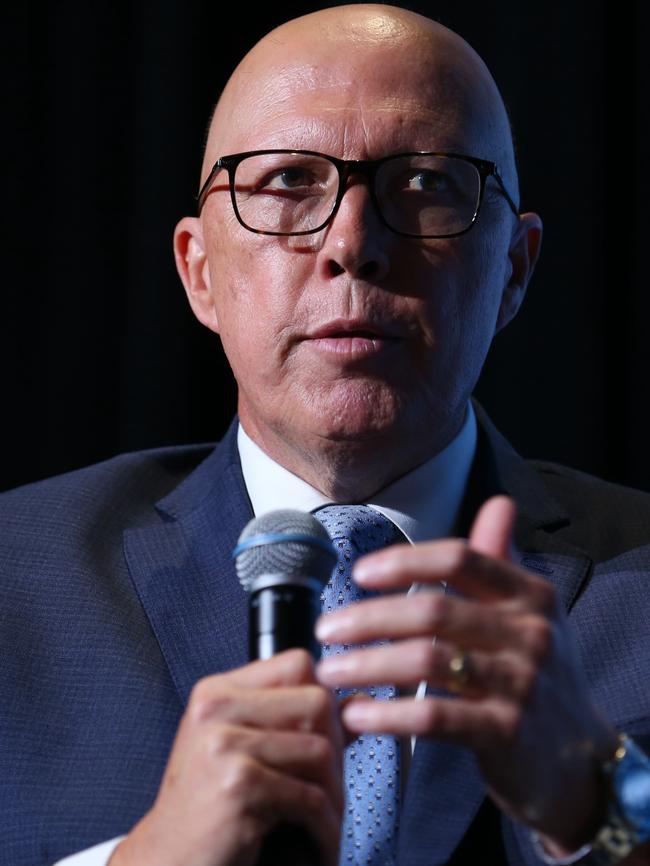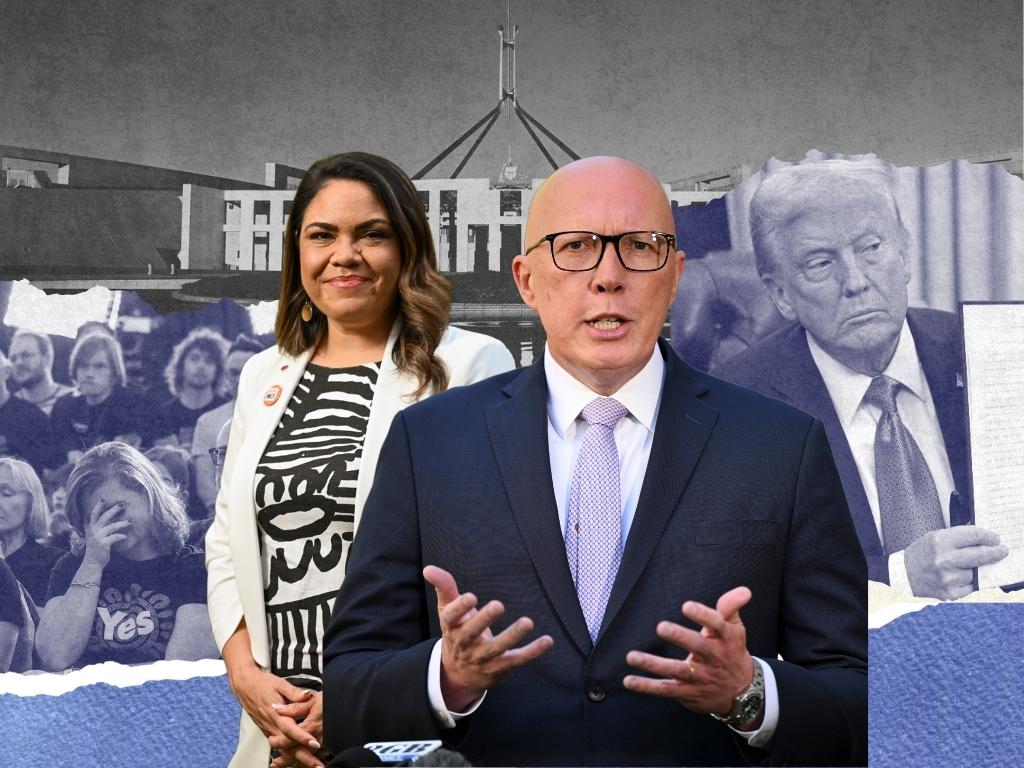Big business and Peter Dutton on same page ahead of election fight
Business chiefs will campaign for measures already endorsed by Peter Dutton and heap pressure on Anthony Albanese over spending, deregulation and tax.

Business chiefs will campaign for economic measures already endorsed by Peter Dutton and heap pressure on Anthony Albanese over government spending, deregulation and the need for sweeping tax reforms.
Despite friction with the Coalition following the last election and the Opposition Leader’s pushback against big business, the Business Council of Australia on Tuesday will unveil a 2025 election platform including economic and productivity measures Mr Dutton has backed.
The BCA election manifesto is headlined by suggested policies including appointing a minister for deregulation, setting a target to remove duplicate regulations, capping spending growth to an annual rate of 2 per cent, reinstating the tax-to-GDP ratio cap of 23.9 per cent and ensuring “more transparency around off-budget expenditure”.
Australia’s largest employers are also calling for an investment allowance to encourage innovation, a lower company tax rate of 25 per cent and consideration of increased reliance on indirect taxes, including the GST, to “reduce taxes that are more harmful to growth”.
Ahead of 30 BCA member chief executives meeting with Jim Chalmers, Angus Taylor and independents in parliament this week, BCA chief executive Bran Black said “I am consistently told that Australia’s regulatory settings are uncompetitive”.
Mr Black warned the country was losing out on the “critical investment needed to drive future prosperity – fixing this has to be a national priority”.
While the BCA campaign will be non-partisan, policies pushed by big business are already aligning with commitments made by Mr Dutton. Following the US election and creation of the Elon Musk-led Department of Government Efficiency, Mr Dutton used his Coalition frontbench reshuffle to appoint Jacinta Nampijinpa Price as opposition government efficiency spokeswoman.


The Coalition, which is yet to release detailed economic election policies, supports the tax-to-GDP ratio, a fairer and more efficient tax system, ending government spending waste and slashing red and green tape.
Mr Black said “other jurisdictions around the world, and especially the United States, are looking to make their regulatory systems more efficient – if we don’t follow suit then we will lose investment and see a consequent reduction in our way of life”.
The BCA platform is based on five issues it considers most important, including easing cost-of-living pressures, fixing the housing crisis, achieving net zero by 2050, developing the future skilled workforce and how best to deliver health and care services.
With households and businesses reeling from high inflation and interest rates, the BCA is pushing Labor and the Coalition to “control the budget to spend less and more effectively”.
“One way to fight inflation is to limit money pushed into our economy. Commonwealth government spending is expected to increase to 26.5 per cent of GDP in 2024-25 and 27.2 per cent of GDP in 2025-26. Outside the pandemic period, this is the highest level of spending as a share of GDP since 1986-87,” the BCA platform says.
“Having even more dollars chasing a limited supply of goods and services risks prolonging inflation and interest rates staying higher for longer. While this is not to suggest that we should not be taking government action to support our most vulnerable, we must have an overall whole-of-government aim to get spending under control.” In addition to the Productivity Commission “monitoring the burden of regulations on business in comparison to global peers and providing annual recommendations to Treasury on the reduction of regulation”, the BCA wants set targets removing “regulation that duplicates processes across government departments and jurisdictions”.
The BCA pushed back against “super-profit taxes … given our already uncompetitive company tax settings” and said a 25 per cent company tax rate for all could be “introduced through a phased reduction in the current rate by one percentage point a year”.
Amid soaring health and care services budget pressures, the BCA warned governments against spending “on the basis that it will always deliver improved outcomes … the reality is there must be a focus on quality alongside the quantity of spending”.








To join the conversation, please log in. Don't have an account? Register
Join the conversation, you are commenting as Logout